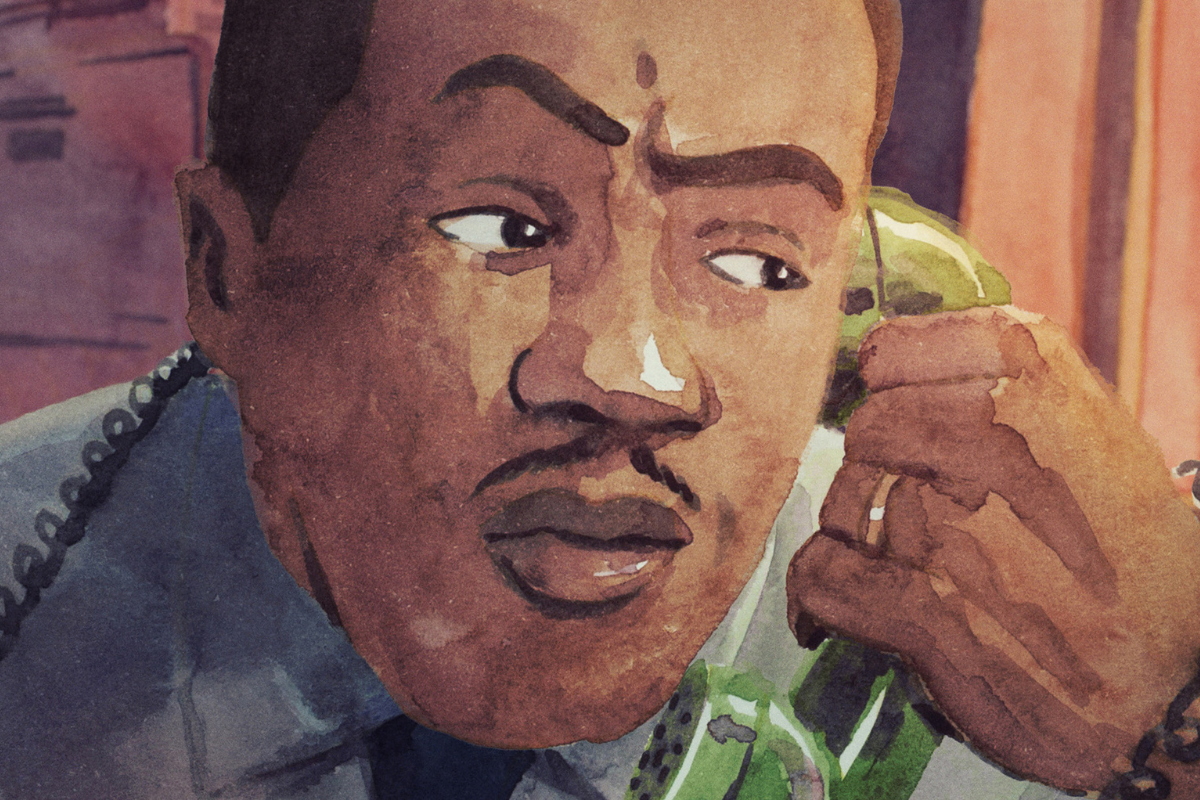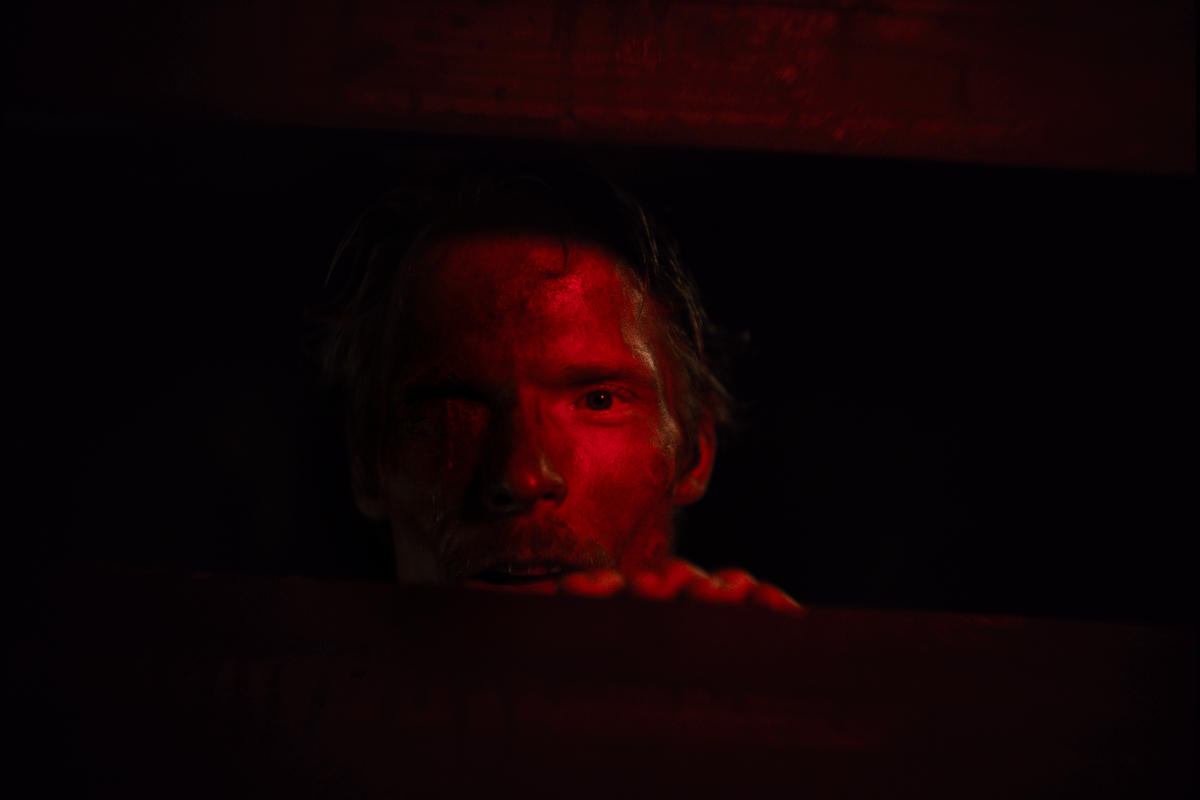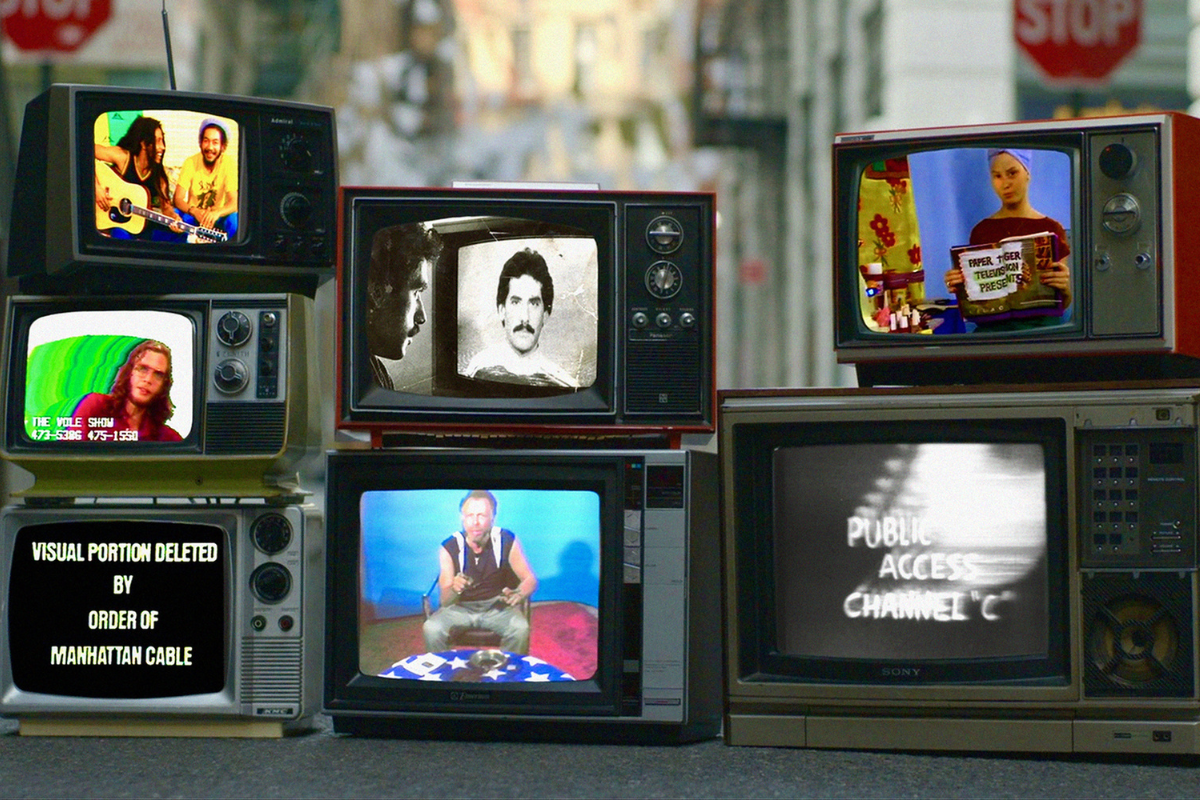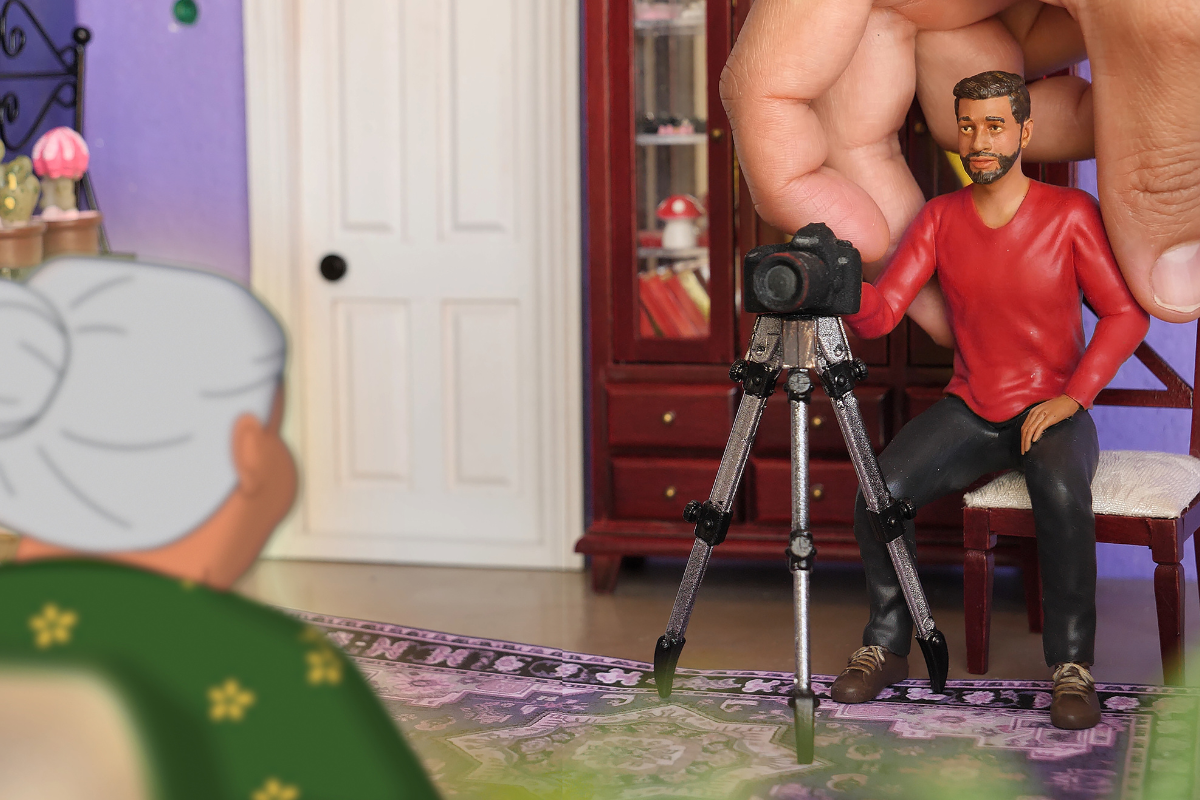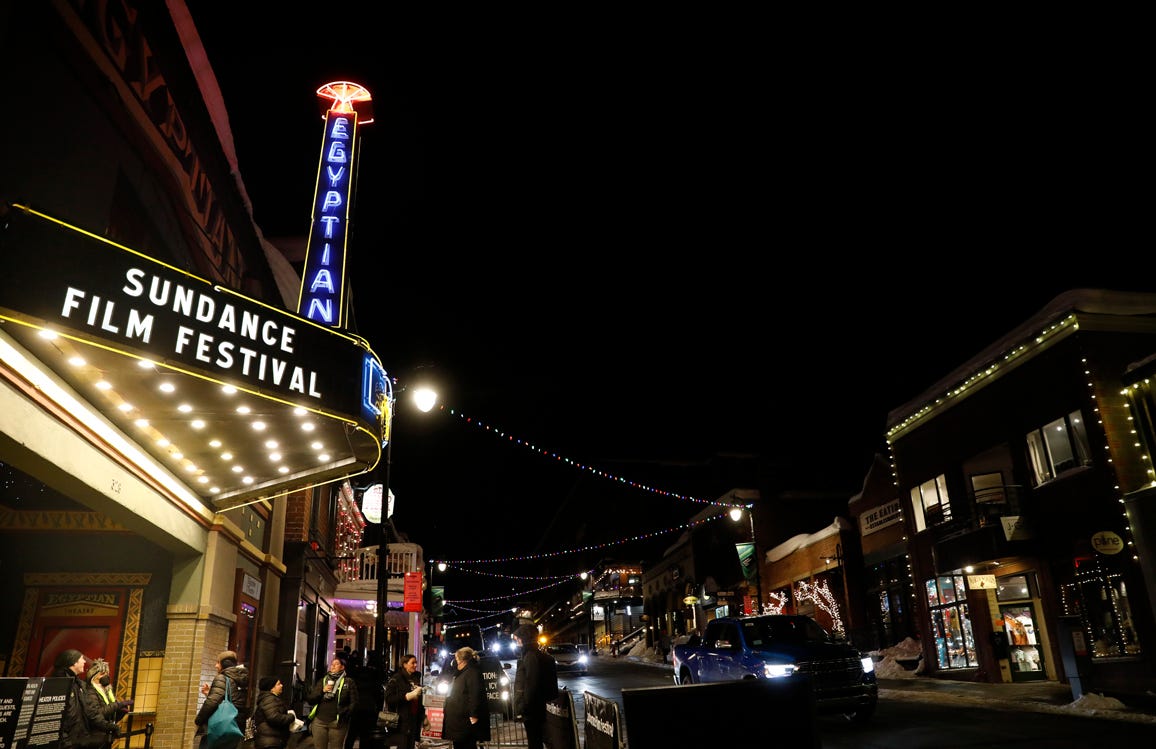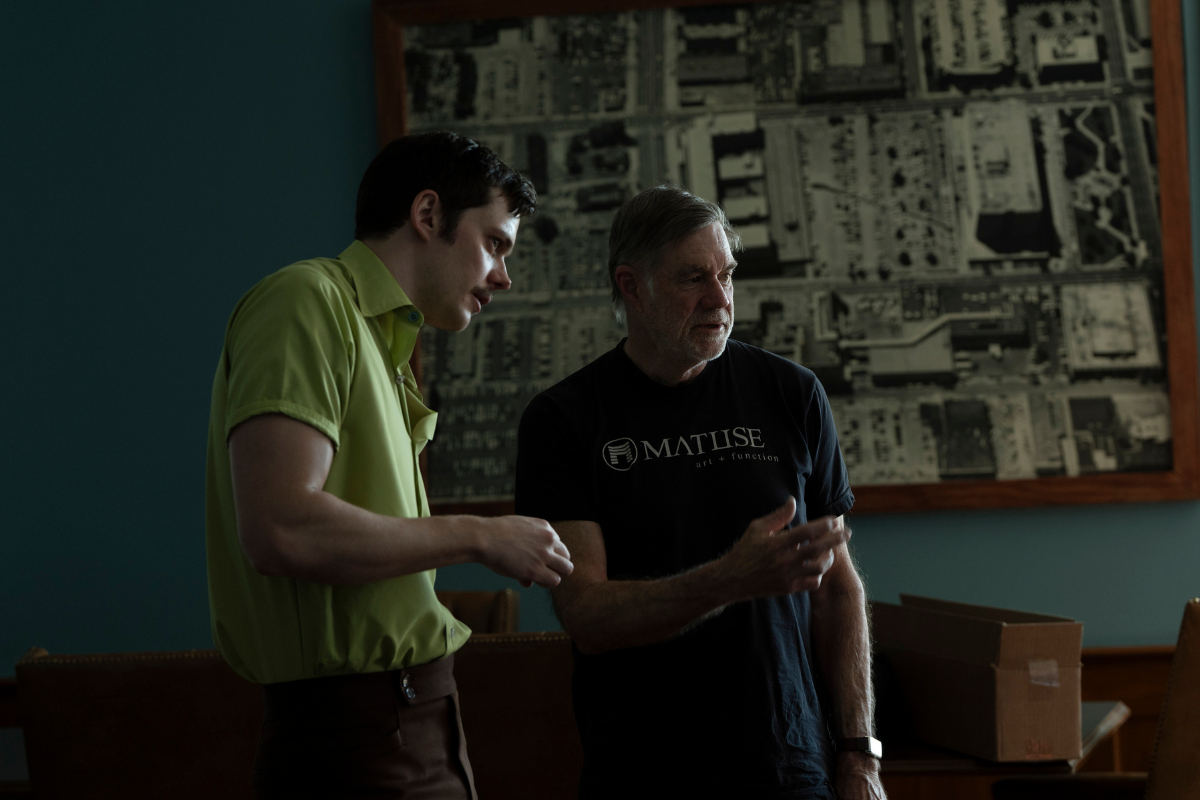INDIE SPOTLIGHT: An Interview with Producer, Actress, and First Bloom Films Co-Founder, Katherine Waddell
Katherine Waddell shares with Script her creative mission as a producer, the importance of creating an LLC as a creative, and puts great emphasis on why you should always be prepared when networking.
Katherine Waddell is a tour-de-force. Throughout the years she's been able to navigate the industry successfully, as both an actress and producer. She worked as an actor and co-executive producer on the acclaimed indie feature Dinner in America, which premiered at the 2020 Sundance Film Festival, and also executive produced Tribeca Film Festival 2021 selection, IFC’s We Need to Do Something, a horror feature starring Vinessa Shaw. Most recently, along with First Bloom Films co-founder and award-winning filmmaker Em Johnson, filmed the feature film Balloon Animal during the pandemic, which is currently making its rounds through the festival circuit.
Katherine shares her creative mission as a producer, the importance of creating an LLC as a creative, and puts great emphasis on why you should always be prepared when networking.
This interview has been edited for content and clarity.
Sadie Dean: You've had a lot of success as an actress in this business, what made you want to put on the producer's hat?
Katherine Waddell: I think any actor will tell you that it's so few and far between, especially at the beginning of when you're actually getting work. There's someone who has an analogy, for every ten auditions, nine are no. But I know that I love the industry, and I know that I love filmmaking. And I knew that I was happiest on set - I wanted to be on set no matter what. So, I was like, ‘What is another way that while I'm waiting in between these acting jobs, I can still work in a career that I love?’ And because I am a lists person, and type-A person, producing just seemed like the next best thing for me. I got into it just a way to be closer to what I love and it brings me its own set of joy as well; to start something from beginning to end.
Sadie: What kind of producer are you? Are you more of a creative or logistical producer?
Katherine: I try to have creative input as much as possible. With my own company or film like Balloon Animal, I'm building it from the ground up with my best friend, there's way more creative input and because it's for us, it's our vision. But when I get tapped to do commercials and stuff like that, that's a little more hands-off creative-wise, it's more like a work-for-hire where you're working with the director and a client. So, it really just depends on the project. I definitely get more out of being a creative producer.
Sadie: You recently co-founded your production company First Bloom Films with your friend Em Johnson, can you share the importance behind why you two founded this company?
Katherine: I always start that answer with a joke, we created a production company so that we could make films that we like. At the end of the day, we are audience members, first and foremost. What do we want to watch? What do we want to create? But more so than that, we saw this need through our own work to create an environment for women to thrive, especially in film. As women working on sets, we weren't always treated the best. And we were like, ‘We can do it better.’ We are aware of what's going on in the world right now, and we're a part of that and how can we bring that into our careers and reflect our experiences, and really put in the effort to bring women on to set as much as we can. Whatever that looks like; whether it's on our actual sets, or in association where we might not have all the say, but you still have us in the room pushing for women. Also, we wanted to create a set where kindness and compassion and empathy is first and foremost. There's a lot of negativity in the industry, which is normal when you bring in a lot of pride and ego in art, and there's definitely this ‘suffer for your art aspect’ or work your way up in the world. And so getting treated like shit is just all a part of it, you're earning your stripes. And we think that's bogus. That doesn't add anything to the quality of the work at all. If anything, you're making people feel terrible on set, it translates into the work, making the work worse. That was really all of our main tenants of what we wanted First Bloom Films to represent, while creating work that we were proud of, and that other people would enjoy and watch.
Sadie: I think that’s amazing. I've been on a lot of sets where halfway through the first day you’re questioning, ‘Why am I here? This is miserable.’ But you need to pay your bills.
Katherine: 100% and I've talked about this before as well, this fear that's ingrained in us that we can't speak up for ourselves. One is women, we're taught that from day one, but in the film industry, you're so petrified of ruining your career, of crossing the wrong person, of being like, ‘Oh, they're going to tell everyone that I'm a bad worker, because I asked them not to talk down to me,’ which is a crazy concept. But it's pervasive, it's real, it happens. The thing is, Em and I are also people who learn as we go, we don't know everything, this is going to be a lifelong journey of learning. We also want people to feel like if they have a question, or a comment, or a statement that it's safe to ask, and no one's going to shame them or make them feel stupid. Or if you don't know what that term is, that's OK. I once didn't know what it was; I wish someone had made me feel comfortable enough to ask. It’s creating and fostering that world where you're going to enjoy working with us, hopefully, to the best of our ability.
Sadie: It starts from the top. Working in the independent space, can you share the importance of starting a production company for both the professional standpoint and protection?
Katherine: It's all about protecting yourself and protecting your intellectual property. And also setting yourself apart when it comes to the professionalism that you're talking about, in a not condescending way at all, people are constantly trying to get into film, and you always have to start somewhere, and when you start at the bottom, you may not have all the tools in your toolbox that make someone say, ‘Oh, this is going to be a really great working environment.’ So, when you go through the process of creating LLCs: you have your parent company, and then you'll film under your parent company - you're protecting your assets. When you pitch or you're asking someone to work with you, you're showing them that you have the knowledge that you know what you're doing, because you don't want to get into a meeting with someone important and they're asking you questions that you don't have the answers to. So, starting a production company, getting those LLCs helps you just look like you know what you're doing, and you do know what you're doing if you do that, right? It’s all part of staking your spot in the industry.
Sadie: In 2020, you both acted and co-executive produced a film Dinner in America, which screened at Sundance. In terms of networking, at a place like Sundance Film Festival, even if you don't have a film there, what are some tips you can share with us on how to get the most out of networking at festivals?
Katherine: I recently spoke at Comic-Con, and they were like, ‘What is a piece of advice you would give someone?’ and I was like, ‘Always be prepared for when opportunity presents itself, don't try and catch up when it's too late.’ When you're networking, going to a place like Sundance where sure you might not have a movie there - the first four years that I went to Sundance, I was there just begging for attention, 'I'm here!' - you should have something prepared to talk about. Because when you go to these things, everyone's talking about work, right? What do you do? What are you doing? You're all sussing each other out, you're trying to figure out if that's a project you want to get on. Is that someone you want to work with? So, if you don't have projects prepared, then you don't have anything to talk about. Obviously, it's nice to make friends and network and that's a part of it. It's the biggest part of it, probably making a real connection with someone so that they do want to hear about your projects. But then, what's part two? The way these things go is you'll meet someone and they'll be like, ‘OK here's my card. On Monday, when you get back from Sundance, send me the pitch deck.’ You have to be prepared for scenarios like that. Balloon Animal is entering the film festival circuit, we announced Manchester the other day, hopefully, it will get into more. We are preparing packages that have nothing to do with Balloon Animal, so that when we get to those film festivals, and people say, ‘Balloon Animal, great loved it! Now what?’ This is what we have. ‘Oh, I don't really like that, do you have something else?’ Yes, we do have something else. I brought Balloon Animal to Sundance one year when I was still pitching it, and I had this great conversation and the person was like, ‘Love that, love you, I don't do coming of age, do you have a horror?’ I was like, ‘No, I don't have that.’ You will encounter situations like that, you just want to be best prepared for that conversation.
Sadie: Being prepared and having pitch decks or having that portfolio ready to go, because people will always ask, ‘What else do you have?’
Katherine: Yeah, what else do you have? And you don't have to have a completed, perfect world, but if you are engaging in conversation, and are also trying to convey, for instance, what your company is about, and the kind of movies that you've made, you want to be able to show them the spectrum, the vibe, the feeling that they'll get when they watch your movies.
[An Interview with 'A Holiday in Harlem' NAACP Image Awards Nominated Screenwriter Monique Matthews]
Sadie: Talking about your company, what kind of movies are you interested in making? I know that you're looking to amplify female voices as filmmakers, but are there specific genres, or are you doing whatever clicks?
Katherine: Em and I would never want to be like, we only do this or we only do that because, once again, we're audience members, right? We enjoy watching different things. It's almost a cop-out but anything that we think is good. Our bread and butter is really character-driven stuff. Where you’re watching an interesting story with main characters that you're invested in. What is their journey? What's going on in their life? Who are they? That's the most important thing to us and whether that's found in a horror or a comedy or drama, is it interesting to watch? Is it interesting to read when you read the script? Does it pop out at you?
Sadie: Do you have an arsenal of filmmakers in the wings to bring on to these projects as well?
Katherine: We do. We have people that we worked with in the past, where we're like, ‘Oh, it was a joy to work with you, you're on the same page as us. You believe in the same stuff,’ because that's what you want, right? You want to bring people on set who also believe in the same stuff that you do. But we're always open to meeting more people and open to working with more people. Just because you like to work with someone doesn't mean they're going to be available. It's always building a toolbox, building the arsenal. There's always some trial and error with that, which is unfortunate. You don't always get it right. Especially the first time you're working with someone. But when you do get it right, and you click with someone, it's fantastic.
Sadie: Creating your tribe. It's really exciting to me to see more females team up and start production companies. Where do you hope to see both your company and the future of women in Hollywood, in the next five years?
Katherine: I hope that the industry is better. That having a company like First Bloom Films is not trendy, right? Or that it's not like, ‘in’ or ‘cool’ or a movement. And I know movements last a long time. And as women, stuff related to our gender is a battle that's never-ending, but if the work everyone's doing right now is computing and happening and being received, then it'll slowly start to become a normalcy. Olivia Wilde talked about a ‘no assholes on set’ rule, and everyone was freaking out about it, because it was like, ‘Wow, that's so crazy cool that she did that.’ And it is, and now I'm hoping five years from now, when that happens, it's not going to be a crazy cool thing, right? It's just, ‘Yeah of course you would fire an asshole.’ I hope First Bloom Films is a part of that. I hope in five years, you recognize our name, you like our movies, and when you watch a movie, you know in the background, that that's what our company stands for, and that we're a part of the sisterhood of many companies that are like that.


